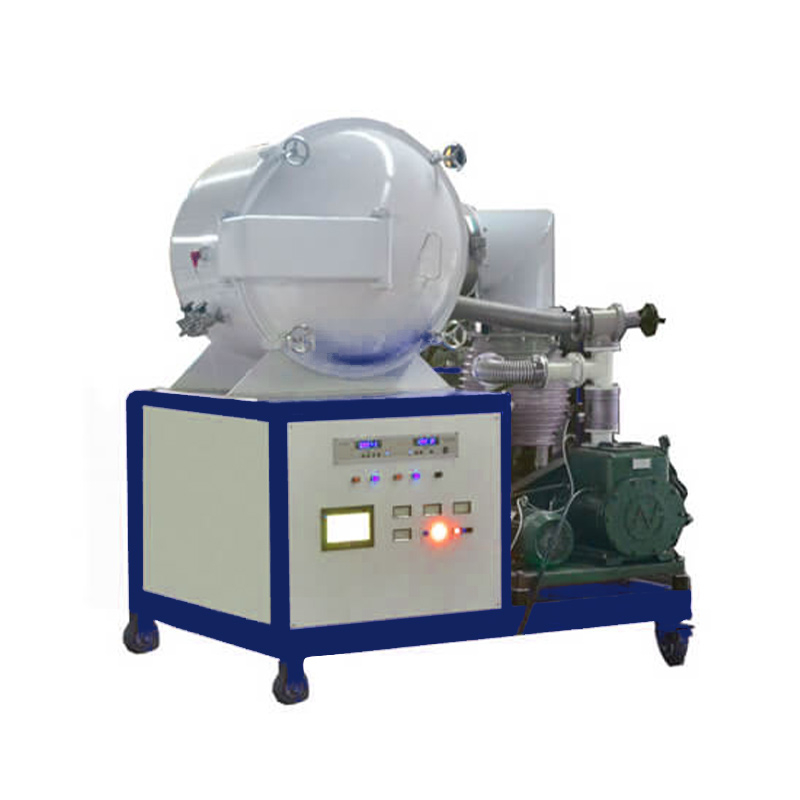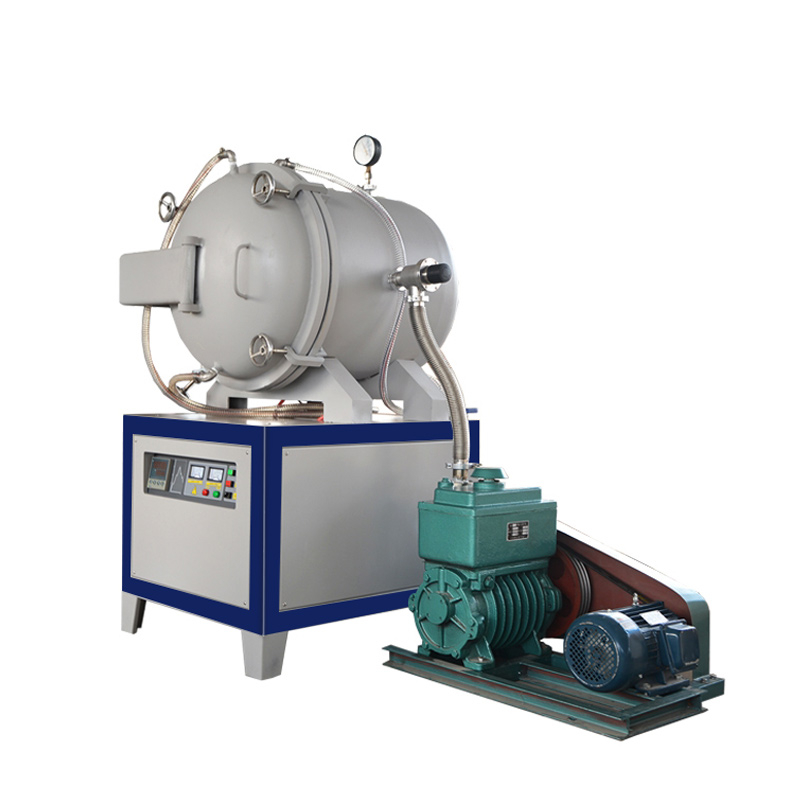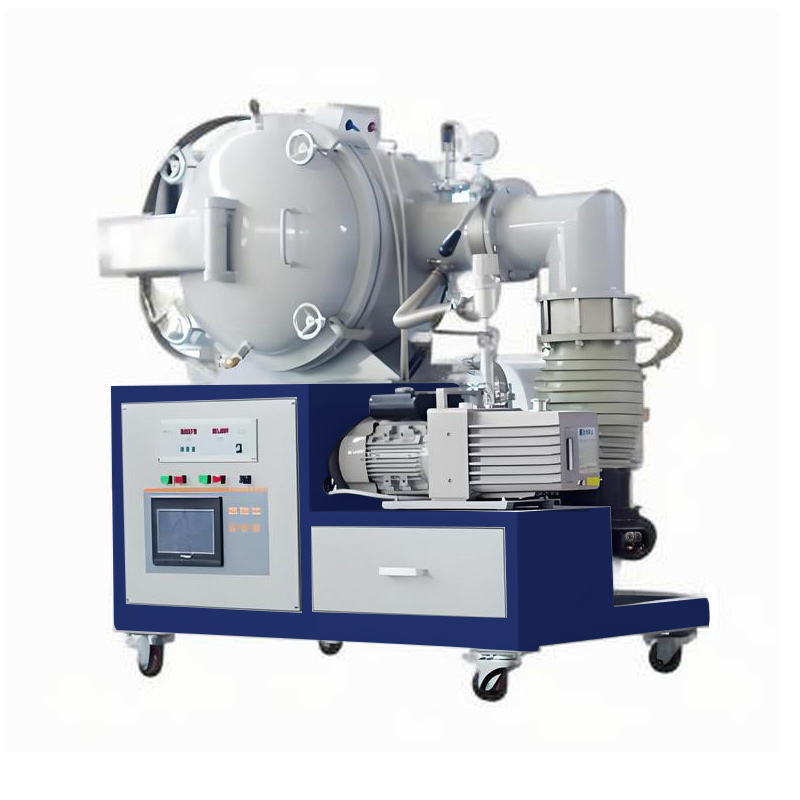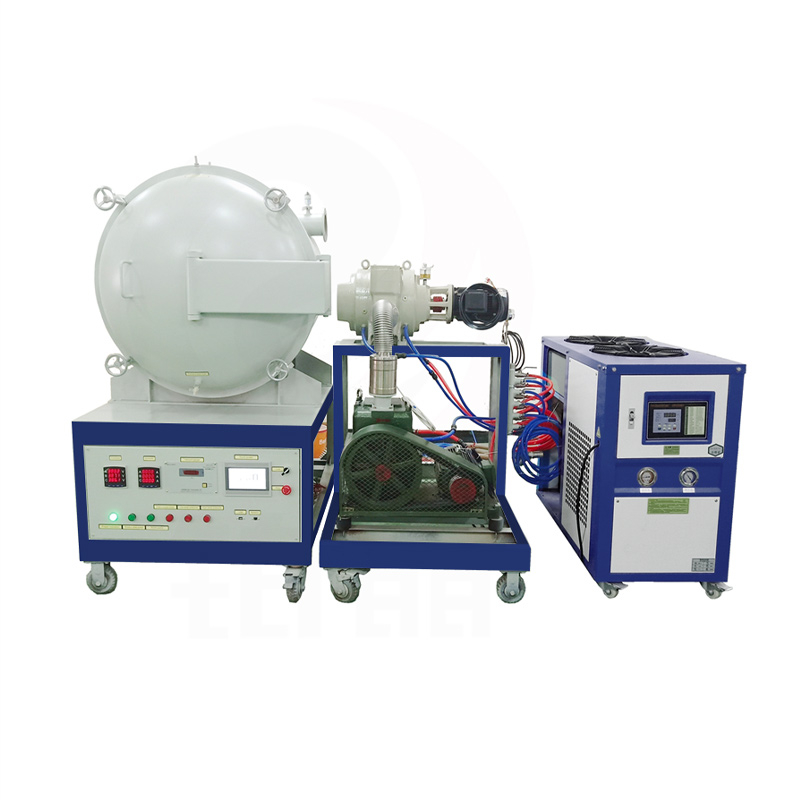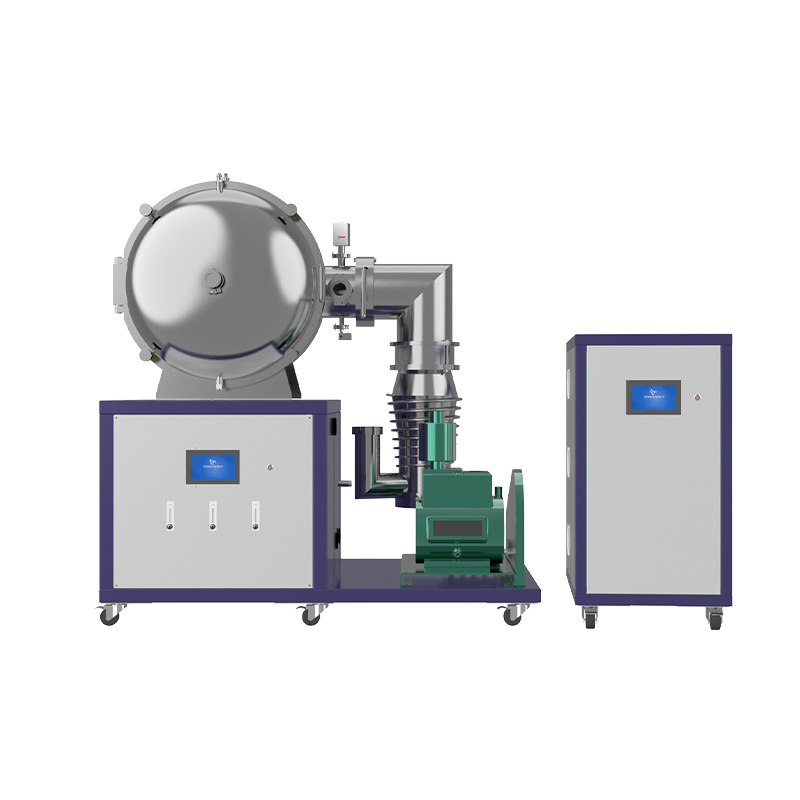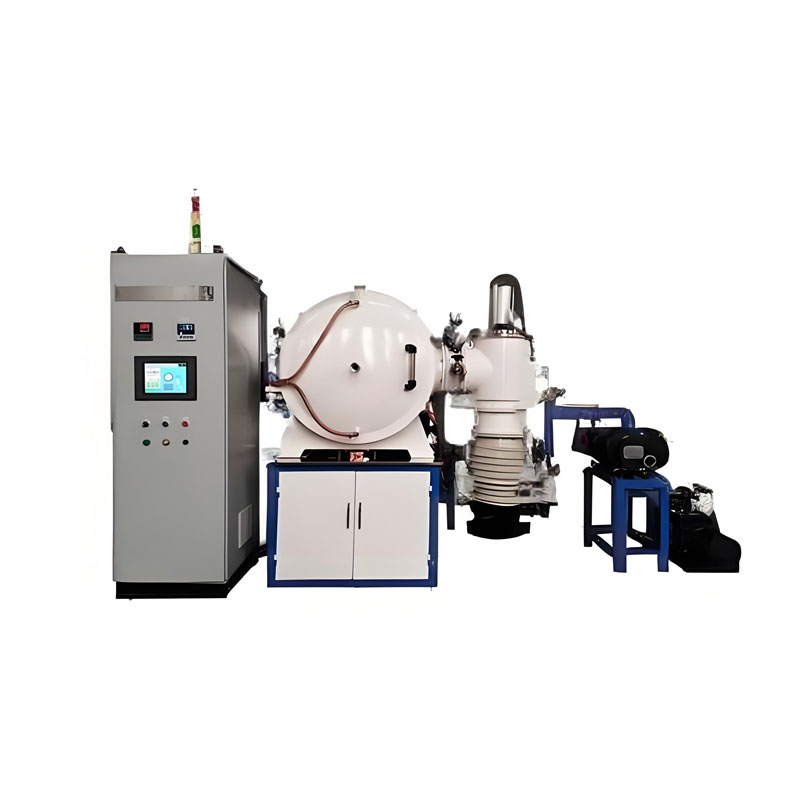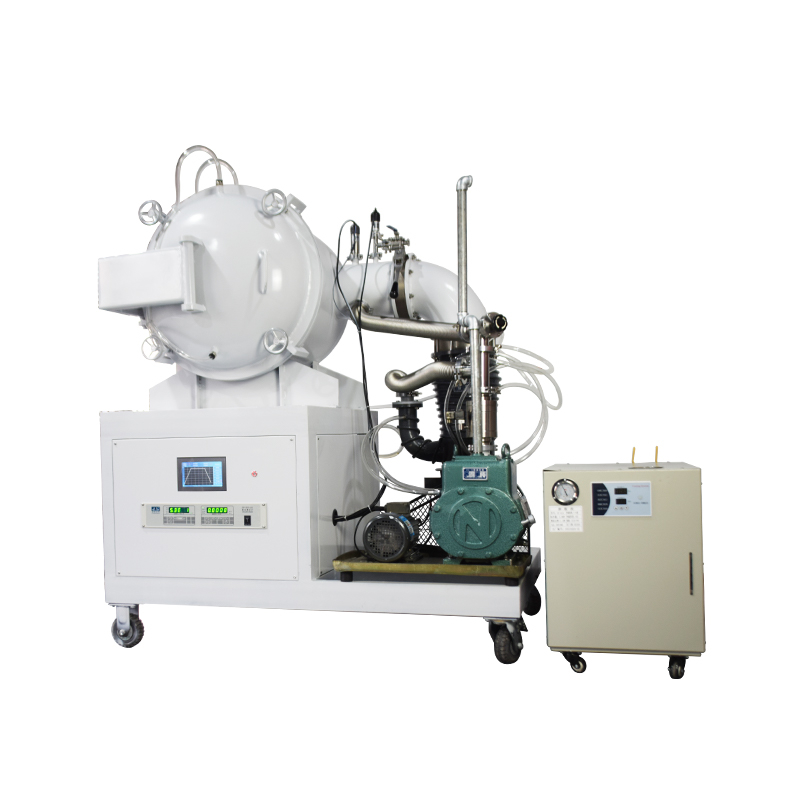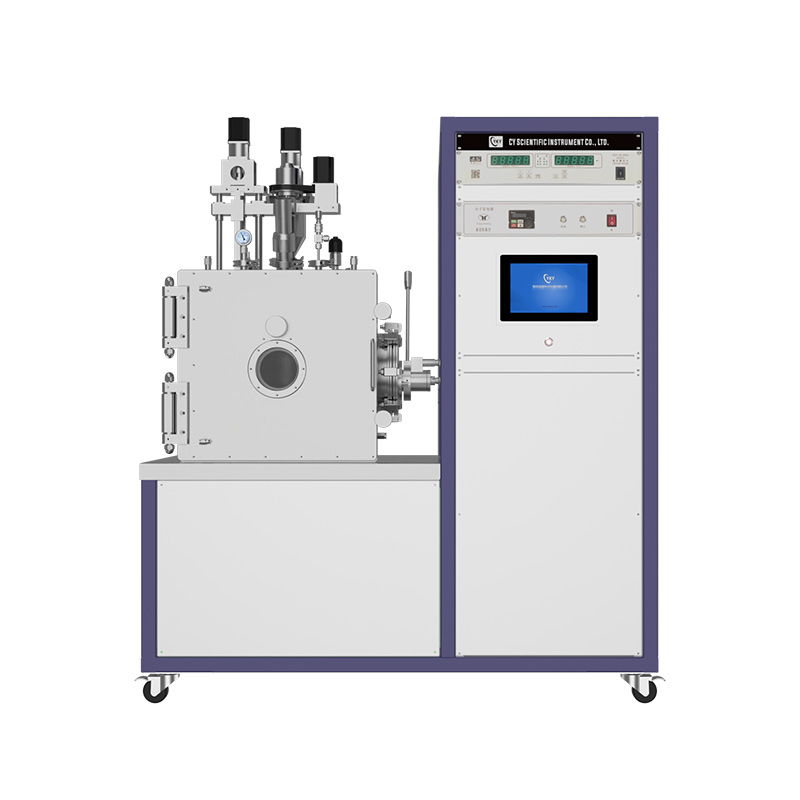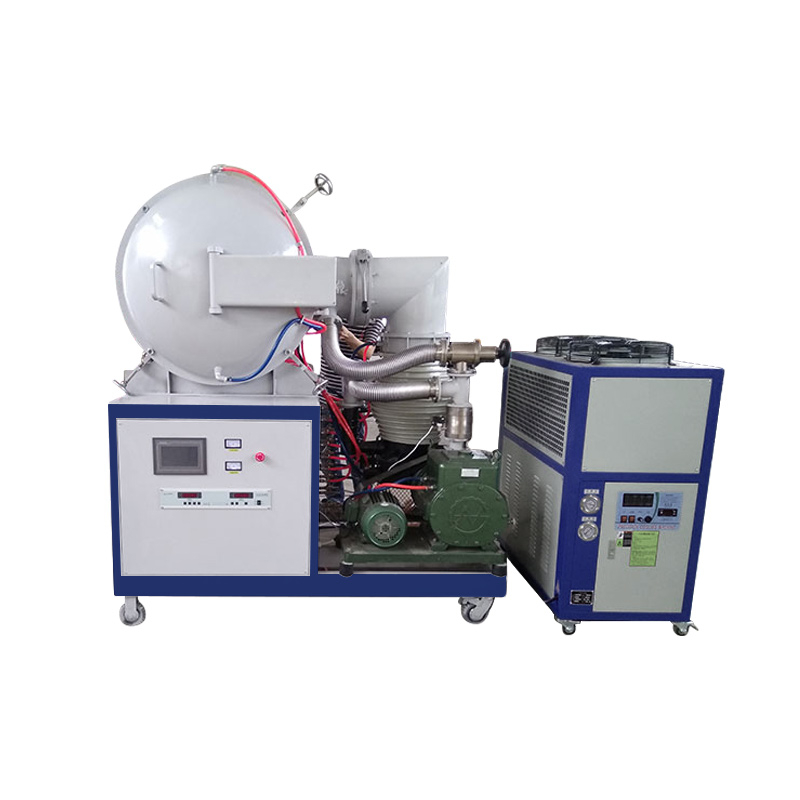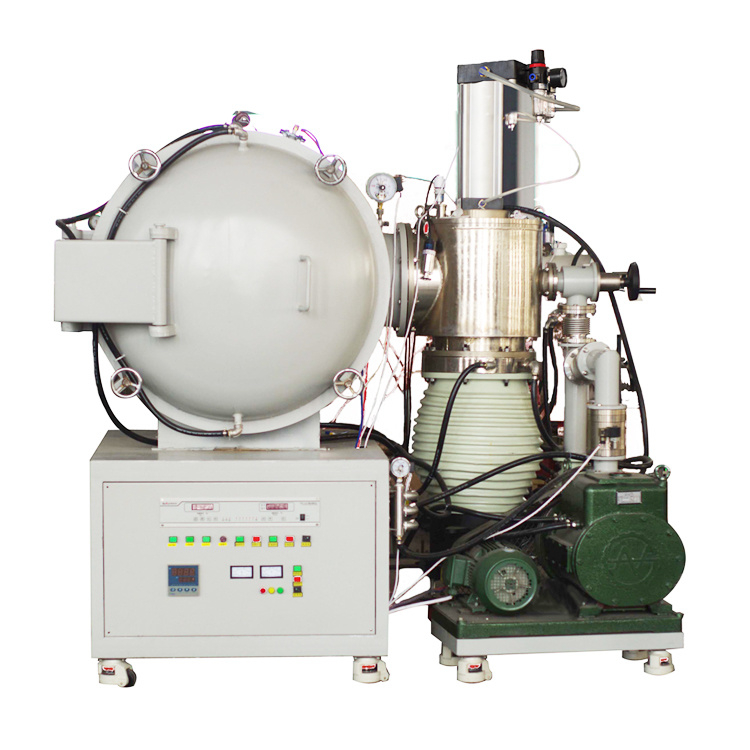The Silicon Molybdenum Rod Furnace is a high-temperature electric furnace specifically designed for the sintering, melting, and heat treatment of materials.
Structure and Materials:
Silicon molybdenum rods serve as the heating elements, offering excellent high-temperature stability and oxidation resistance, capable of withstanding temperatures up to 2000°C. The furnace body is typically made from high-temperature resistant materials (such as ceramics or refractory bricks) with good thermal insulation properties.
Working Principle:
The silicon molybdenum rods generate heat through resistance heating when electrified, directly heating the workpieces inside the furnace chamber. Temperature control is usually achieved through a PID system to ensure the accuracy of the heating rate and temperature.
Application Areas:
Ceramic Sintering: Widely used for the sintering of ceramic materials like alumina and silicon nitride, improving material density and strength.
Metal Melting: Suitable for melting high-melting-point metals (such as tungsten and molybdenum) for metallurgy and material research.
Composite Material Preparation: Used for synthesizing high-performance composite materials, such as silicon carbide and silicon molybdenum composites.
Scientific Research: Extensively applied in experimental research in materials science and chemical synthesis.
Advantages:
High Temperature Capability: Achieves high-temperature processing up to 2000°C, suitable for various materials.
Precise Temperature Control: Enables accurate temperature adjustments through an advanced temperature control system.
User-Friendly Operation: Reasonably designed structure for ease of operation and maintenance.
Precautions:
Strictly follow safety protocols during high-temperature operations to avoid contact with high-temperature components.
Regularly inspect the condition of heating elements and the furnace body to ensure safety and stable performance.
The silicon molybdenum rod furnace, with its high-temperature performance and wide applications, has become an important piece of equipment in modern materials processing.
Purchase Information:
If you are interested in our silicon molybdenum rod furnace, please contact us for more information and quotations.
Phone: 185 3800 8121
Email: Lily@cysitech.com
Contact Person: Zhao Xiaoli
WeChat: 15617818691
Technical Parameters:
Parameter Name | Parameter Description |
Product Name | The Silicon Molybdenum Rod Furnace |
Product model | CY-VF-SMR |
Maximum Temperature | 1700℃ |
Heating Element | Silicon molybdenum rods have excellent high-temperature stability and oxidation resistance |
Furnace Material | Resistance heating directly heats the samples using silicon molybdenum rods.. |
Heating Method | Primarily radiation heating, supplemented by natural convection heating |
Atmosphere Control | It can operate under inert gas conditions (such as argon or nitrogen) or in a vacuum |
Temperature Control System | Precise temperature control, usually using a PID controller with a digital display. |
Chamber Dimensions | Common sizes include 100100100 mm, 200150150 mm, and 200150150 mm; customizable based on requirements. |
Temperature Fluctuation | Usually ≤ ±5°C to ensure experimental reproducibility. |
power density | The power density generally ranges from 5 to 15 W/cm², varying depending on the furnace model. |
Vacuum System | Optional vacuum pump; ultimate vacuum can reach 10^-4 Pa or lower |
Safety Protection | Multiple safety protection features, including over-temperature, low water, over-current, and over-pressure protections. |
Cooling System | External water cooling circulation system to ensure equipment safety and stability. |
Control Method | PLC or microprocessor control with touch screen operation for ease of use. |
Application Process of Metal Melting in a Silicon Molybdenum Rod Furnace:
Application Process
Raw Material Preparation:Select high-purity metal materials, such as molybdenum or tungsten, ensuring there are no impurities.
Crucible Selection:Use high-temperature resistant crucible materials (such as graphite or refractory ceramics) to hold the metal raw materials.
Loading:Place the prepared metal raw materials into the crucible, ensuring even distribution.
Loading into the Furnace:Carefully place the crucible containing the metal raw materials into the silicon molybdenum rod furnace.
Atmosphere Control:Evacuate the chamber or fill it with inert gas (such as argon) to prevent oxidation of the metal at high temperatures.
Heating:Start the furnace and gradually increase the temperature, typically setting it above the melting point of the metal (for example, about 3420°C for tungsten and about 2620°C for molybdenum).
Melting Process:Maintain the high temperature for a certain period to ensure the metal is completely melted, forming a uniform liquid metal.
Cooling:After melting is complete, gradually lower the furnace temperature to avoid thermal stress that could cause cracking of the metal.
Casting:At an appropriate temperature, pour the molten metal into a mold to cool and form.
Removing the Finished Product:Once the metal has completely cooled, remove the casting for further processing or inspection.
Precautions:
Ensure the furnace body and crucible have high-temperature resistance to withstand the extreme conditions during the melting process.
Control the heating and cooling rates to avoid cracking due to thermal shock.
Regularly check the condition of the heating elements and the furnace body to ensure safety and stable performance.
By following these steps, the silicon molybdenum rod furnace can effectively melt metals, producing high-purity metal materials.

